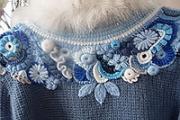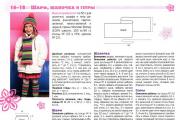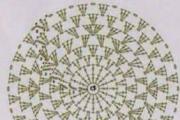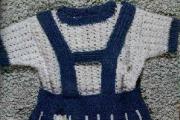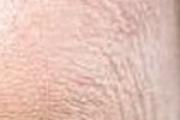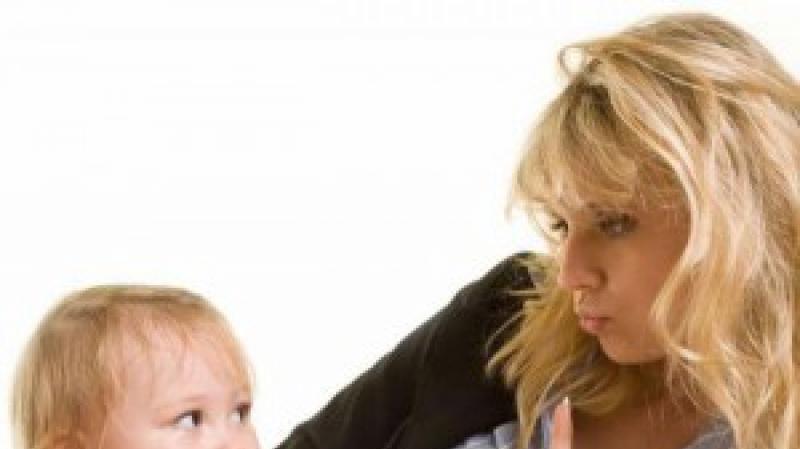Does your baby need a pacifier? Does a child need a pacifier? Should I take a pacifier to the maternity hospital?
Elena Zhabinskaya
Hello, dear readers, Lena Zhabinskaya is with you today with the discussion topic of whether a newborn needs a pacifier when breastfeeding.
The question is relevant and not simple. On the one hand, there is a crying child who can be comforted with a pacifier, on the other hand there are horror stories about an incorrect bite and the baby refusing to breastfeed because of the pacifier. Is this true or is it a myth, and what should be guided by the question of whether it is possible to give a pacifier or not, we will find out today.
In order to understand whether your little one needs a pacifier, you need to understand the main purpose of its use.
Nature has endowed babies with a sucking reflex. Thanks to him, they can find mother's breast and get milk from it. This is a natural instinct aimed at preventing the baby from dying of hunger.
Meanwhile, in some infants this reflex is overdeveloped. To such an extent that they want to suck even when they are completely full.
Such a child is able to hang on his mother’s breast around the clock and suckle without swallowing. Only in this state does he feel calm and good. But as soon as the mother moves away, the baby begins to burst into tears, forcing the exhausted woman to again take him in her arms and breastfeed.
Is this a familiar situation? But this is precisely the main purpose of the pacifier. It is needed in order to satisfy the sucking reflex of a well-fed, dry and healthy baby, while allowing mom to go about her business, home, dad, relaxation, older children, but you never know what a modern woman has to do! Everyone is satisfied and happy.
When not to give
Meanwhile, there are situations when you cannot give a pacifier:
- Newborn period. From the point of view of medical science, a newborn is considered to be a baby between the ages of birth and 28 days.
This ban is quite simple to explain. Now the formation and normalization of lactation is taking place. The woman’s body learns to produce the required amount of milk, mother and baby get used to each other.
It has been scientifically proven that stimulation of the mother's breast by the baby during sucking is the most powerful stimulator of milk production.
Consequently, it is during this period, when it is vital to successfully establish natural feeding, that all the baby’s efforts should be directed exclusively at the mother’s breast. This is the main goal and task of both.
While the newborn is awake, it is optimal for him to be near the mother's breast. This is not at all difficult to achieve, since right now the babies sleep a lot of time, and putting them to the breast the rest of the time is not at all burdensome for the mother.
- If the mother has problems with the amount of milk.
At any age of the child, if a woman’s body produces an insufficient amount of milk, or a period of lactation crisis has begun, it is worth using all the strength of the baby’s sucking reflex to suck on the mother’s breast.
As we have already noted, this is the main way to stimulate lactation. Read about other ways to increase milk production.
Is it even worth teaching
So, everything is fine with natural feeding, lactation has improved, and you are wondering: is it even worth teaching your child a pacifier?
There is no need to do this on purpose. If your child grows up calm, eats when it is convenient for you and him, sleeps, plays, does not cause you any inconvenience, and you are perplexed at what moments to give a pacifier, you can only be congratulated!
And there really are such children - those who grow up safely, knowing nothing but their mother’s breast, but at the same time not causing inconvenience to their mother by sucking on her around the clock.
Thus, giving a pacifier to a baby for the sake of its very fact and because other children seem to be with it is not worth it. Your child doesn’t need it – and that’s very good.
It’s another matter when the baby’s temperament is too active and the sucking reflex is too developed. Let's talk about this below.
When is a pacifier needed?
We have already found out that not everyone needs a pacifier and not always. It is optimal if the little one spends as little time as possible with it in his mouth.
But be that as it may, its use is completely justified, and the benefits are obvious in the following cases.

This list is far from exhaustive, and you may well add to it at your own discretion.
Experts' opinions
The vast majority of modern pediatricians will agree that a pacifier can be used, with the exception of the neonatal period and provided that the mother does not have problems with lactation.
There is a myth that a child, after being introduced to a pacifier, refuses to breastfeed, since the pacifier is easier to suck on than the breast. There is a substitution of concepts here. If you start periodically offering food from a bottle to a breastfed baby, then there really is such a risk. And it is explained simply.
A child is also a person, looking for easy ways, and milk flows from the nipple much easier than it is extracted from the breast. Therefore, he will demand the food that is easier to obtain. But in the process of sucking a pacifier, the baby does not get satiated; he still receives food only from the breast and nowhere else. Therefore, a healthy, hungry baby will never refuse to breastfeed because he sucked on a pacifier.
The opinions of dentists on this issue are divided. Some representatives believe that excessive and prolonged sucking of a pacifier can affect the formation of a bite. Regarding this objection, let's appeal to common sense.
In the days of our parents, no one cared about the rules of natural feeding, and almost all dolls grew up with pacifiers in their mouths. Are there many people you know today who have a frankly incorrect bite? I'm sure not - I don't know a single person like that.
Another objection from dentists concerns the increased risk of dental caries. But - attention - this risk increases when you systematically use a dirty item. In the case of regular, proper disinfection of the pacifier, the risk of developing caries is exactly the same as without it.
Now comes the fun part. Some individual psychologists are ardent opponents of the use of pacifiers. They are echoed by lactation consultants who have elevated breastfeeding to the rank of religion.
These comrades call pacifiers “rubber surrogates” and “mom substitutes.” A woman, they are sure, is obliged to provide the child with round-the-clock warmth from her body and access to the breast. Otherwise, she is a lazy person and not a mother. Is the baby crying? Is it really difficult - they aggressively ask - to take him in your arms and give him love? If this is not done, the baby will feel abandoned and will grow up restless and unloved.
I don’t know in what airy and fabulous world those who give such advice live. Maybe living around the clock with a child in your arms and a tit in your mouth is possible if you have a personal maid, cook and laundress at home, and there is no husband or older children. It is also advisable not to be in public places or on the streets in winter. Then - yes, you can devote yourself entirely to serving the baby.
But most mothers live in the real world, in which you need to have time to clean, wash, cook, get yourself in order, run to the store, manicure, pedicure, fitness, meet your older child, help him do his homework, take him to classes, meet your husband, chat with my husband at night.
If the price of all this is the fact that the baby will spend some time interacting with a rubber pacifier instead of his mother during the day, it is reasonable to pay it and live a normal life, thinking not only about the baby, but also about yourself and the rest of the family.
How to choose the right one
A young mother can literally feel dizzy from all the variety of choices on store shelves. Which pacifier is better to choose and how not to get lost in the assortment? So they differ:
- By age.
The size of the pacifier itself varies depending on the age of the baby. Typically these are 0 to 6 months, 6 to 12 months, and 12 to 18 months.
Naturally, you need to pay attention to this when purchasing, because a nipple the size of a one-year-old baby will not fit a one-month-old baby.
- According to the material.
Modern nipples are made of silicone or latex. The difference between them is not critical, but is as follows.
Latex pacifiers are usually yellow in color, softer and more pleasant to the touch, and are more difficult to bite through. However, they wear out faster and are more susceptible to deformation, damage from boiling, etc. These nipples should be changed every 2-3 weeks of use.
Products made from silicone are usually transparent, harder and more durable to the touch. They are easier to bite through, so after the baby teethes, it is recommended to stop using them and switch to latex ones. Silicone pacifiers are more durable and wear-resistant; they need to be changed every 1.5 months.
- According to the form.
The imagination of modern pacifier manufacturers is truly limitless. On the shelves you can find classic round nipples, flat orthodontic nipples, droplet-shaped nipples and those simulating a female nipple.
Some mothers recommend purchasing several and letting the baby choose the shape. For me, you should immediately try a pacifier of the correct shape, which, according to the manufacturer, will reduce the negative consequences of its use and will definitely not affect the bite, that is, a special orthodontic one.
Thus, you will put a bold cross on your conscience - that you purchased a safe and high-quality mother substitute. If your baby has no choice, he will suck on the nipple you give him and that is what he will eventually get used to, no matter what shape it is. So let it be the correct orthodontic shape.
Although - I repeat - this is more to reassure the mother, since entire generations of children who grew up on the most ordinary round nipples do not have massive problems with bite.
- There are also pacifiers that are completely silicone or with a silicone ring.
They do not cause any inconvenience to the baby while falling asleep, when they fall out of the mouth and the baby turns on them and lays his cheek on them.
- Glow in the dark, night.
Such pacifiers absorb daylight, as if charging with it, and glow at night for a certain time, which makes it easy to find them in bed.
Additionally, do not forget to purchase a special case for the pacifier (if it does not come with its own cap) and a clothespin.
The clothespin is attached to the baby's pacifier and clothes, as a result of which it does not get lost or fall on the floor in public places. It is strictly prohibited to use a homemade cord or ribbon for the same purposes, or to hang a pacifier around a baby’s neck due to the risk of suffocation.
How to properly care for your pacifier
After this, sterilize in a way convenient for you:
- In a special sterilizer for bottles and nipples.
- Boil water in a saucepan for a couple of minutes.
- In a double boiler for 2-3 minutes after the water boils.
As an express method, you can use boiling water directly from the kettle. But this must be done very carefully so as not to get burned, and carefully, turning the pacifier under the stream from all sides and angles.
What do you think about using pacifiers, what personal experience have you had, share it with doubting mothers and with me.
We hope you will agree to learn from the mistakes of others. After all, this list is compiled from the experience of many women who put, as it turned out, completely useless things in their maternity hospital bag.
1. Products prohibited for a nursing mother and perishable foods
Anything that is not included in the nurse’s diet in the first weeks of the baby’s life, i.e. foods that can cause allergies or colic, should not be taken with you to the maternity hospital, since you will not be able to eat them anyway. Also avoid perishable dairy products. In the first days after the birth of your baby, the quality of your nutrition should be the highest; you can only consume the freshest dairy products, which your loved ones should give to you every day. The same goes for meat dishes.
In general, taking food with you is not the best idea - it is unlikely that you will want to have a snack during labor, and in the postpartum ward women are always provided with dietary food, and your husband will be able to give you whatever he wants. Just warn him that he must check the list of permitted foods, so don’t give chocolates and exotic fruits to his beloved wife, no matter how much he wants to please you.
2. Postpartum bandage
Yes, it is definitely a useful thing and it is quite possible that your doctor will recommend you wear it. But in the first days you are unlikely to need it, especially if you are expecting a caesarean section - after the operation you are prohibited from wearing a bandage. It’s better to take the space in your bag that you allocated for him with an extra pair of changes of underwear - you’ll need more of it than usual.
3. Breast pump
This clever device is only needed in emergency cases, when the baby and mother are separated and you need to express milk for bottle feeding. In most modern Ukrainian maternity hospitals, mother and child stay together. In the first days of milk coming in, even if you have to slightly pump the breast (which is generally not welcome, nature itself must regulate the amount of milk produced), this must be done with your hands.
Otherwise, with the help of a breast pump, you can “decease” your hyperlactation, and this is by no means good for either the mother or the child. Sometimes curtailing excess milk production can be more difficult than increasing lactation.
With hyperlactation, the mother constantly experiences painful sensations from the expansion of her breasts and runs the risk of getting mastitis, and the baby, firstly, does not receive the richer “hind milk”, and secondly, may simply refuse the breast, as he drinks from a hard, hot, inflamed “dish” “It’s difficult and uncomfortable for him.
4. Pacifier
Modern lactation consultants see it as a universal evil, and in some maternity hospitals it is banned. The fact is that the baby sucks a pacifier completely differently from his mother’s breast. And its use can lead to the so-called “nipple confusion”, due to which the child will begin to suck on his mother’s breast like a pacifier (including biting). This will lead not only to abrasions of the mother’s nipples, but also to ineffective sucking of milk, as a result of which the baby will regularly not receive enough milk.
This is especially dangerous in the first days of milk coming in - the baby is just learning how to suck it out correctly, so don’t confuse the baby.
5. A complete large and varied set of children's cosmetics
As practice shows, most of these tools are not useful. Especially if they were all bought in large bottles. We advise you to limit yourself to products in small trial packaging. Minimum required: baby cream, oil and Sudocrem (or any diaper rash cream).

6. Cotton swabs
This applies to both special cotton swabs with restraints for babies’ ears, and regular ones. What are you going to use to clean your child? Ears? Nose? You will be surprised, but a newborn’s nasal passages are so narrow that a stick simply won’t fit through there. In the first days and even weeks after birth, nose care is carried out using the thinnest flagella twisted from ordinary cotton wool. And babies’ ears can only be wiped from the outside, so a simple piece of cotton wool will do.
7. Medicines
A priori, a nursing mother, and especially in the first days of a baby’s life, is recommended to do without any pharmaceutical drugs. The exception is those medications that you cannot live without and which you are forced to take constantly (insulin by injection for patients with diabetes or hormone replacement therapy, which a woman takes for life after a pituitary gland injury, as well as sprays that relieve asthma attacks, etc.)
If this is your case, warn your medical staff that your life depends on taking your medications regularly. Naturally, you should discuss with your doctor in advance the regimen of taking such medications after the birth of your baby.
All other medications that you may need can be easily purchased at the pharmacy located in the maternity hospital itself.
8. Cream for body modeling after childbirth
We certainly admire your desire to remain a woman and take care of yourself always and everywhere. But, believe me, in the first days after the birth of the baby you will definitely not have time for it. Moreover, you will most likely spend 2–3 days in the maternity hospital. Beauty can wait, and when you arrive home you can use this magical cream. So buy it in advance, just don’t put it in your hospital bag.
9. Deodorant sprays, perfumes and something else
This is especially true if after giving birth you find yourself not in an individual ward, but with neighbors. Strong perfume odors can disturb them. And your child needs the natural scent of his mother, and not the latest new product from Dolce & Gabbana. Newborns may be allergic to perfumes. The same applies to aromatic oils. Believe me, you can do without this for a couple of days in the maternity hospital.

Doctors generally do not recommend taking decorative cosmetics and perfumes to the maternity hospital. And for body care, the same milk and oil that you chose for your baby will suit you.
And, of course, the smells of hairsprays, nail polishes and removers are inappropriate in a maternity hospital room.
The same applies to jewelry. It is advisable to leave them at home in a box. The maximum that is acceptable is a pectoral cross and a wedding ring, if you feel uncomfortable without their “support.”
10. Aroma lamps and smoking sticks
For the same reasons as perfumes and cosmetics in sprays. This can lead to allergies, insomnia and constant crying of the baby, as well as a scandal with the maternity hospital staff and roommates.
A pacifier is an integral attribute and companion of most newborns. There are different opinions about its use. Many parents give a pacifier to their baby because it calms him down. It is important for them to know from what time the child needs it and how to use it correctly. When can you give a pacifier to a newborn? Let's try to figure it out.
Does a baby need a pacifier?
Sucking is one of the first reflexes of a newborn baby. Thus, he gets food and calms down. The baby calmly falls asleep and satisfies his needs for communication.
The question: “When should you give a pacifier to a newborn and is it worth giving it at all?” causes a lot of controversy. Pediatricians, experienced parents, and grandparents provide different and sometimes conflicting information about the pacifier. Young mothers sometimes simply get lost in this stream of opinions and reviews.
Advantages and Disadvantages
When can you give a pacifier? Proponents of pacifier training have the following arguments:
- a pacifier distracts the baby from worries and health problems;
- the pacifier satisfies the sucking reflex of the newborn;
- it has a calming effect, thanks to which the baby sleeps longer and more soundly;
- eliminates the bad habit of thumb sucking;
- prevents the swallowing of excess air and helps the digestive system digest food;
- the baby needs non-nutritive sucking, especially when he is scared or tired: the pacifier gives the baby a feeling of security and confidence;
- A pacifier is given to a child during bathing to prevent him from swallowing water.
Many doctors and specialists note that the use of pacifiers does not affect the progress of breastfeeding at all. And in some cases it is simply necessary.

Opponents of pacifier training have their own opinion:
- the use of a pacifier provokes infection due to improper care;
- with prolonged use, the child may develop an incorrect bite;
- A pacifier can lead to a baby's refusal to breastfeed.
Parents must determine for themselves whether the baby needs a pacifier. And if the decision is positive, proceed to training.
Compatibility of pacifier and breastfeeding
When can you give a pacifier to a newborn? Young mothers are initially concerned about the difference between the shape of a woman's breast and nipple. Therefore, to establish breastfeeding, pediatricians recommend not giving a pacifier to a baby in the first weeks after birth. After all, he needs to get used to the nipple, and not to the pacifier.
If the mother initially accustoms the baby to the pacifier, he will latch onto the breast incorrectly, which will lead to cracks on the breast and problems with the baby’s tummy. In addition, he may completely refuse breastfeeding.
When sucking a pacifier, a baby uses only 2 jaw muscles, and when feeding with milk - 24.

However, the mother should not completely give up the pacifier if the following difficult situations arise.
- Mother and baby are in a crowded place.
- If a woman is sick and cannot breastfeed her baby for some time.
- Cracks have appeared on the nipples, so longer breaks are needed between feedings.
- Mom needs to leave for a certain time, but the baby refuses to stay with dad or other loved ones.
Among other things, a pacifier is needed if the baby overeats. An immature digestive system cannot cope with the volume of food eaten. Sucking movements soothe the baby, relieving discomfort.
Is a pacifier necessary in the maternity hospital?
Is it possible to give a pacifier to a newborn in the maternity hospital? Pediatricians do not recommend accustoming a baby to a pacifier during the period of establishing the lactation process. The first days after birth belong to this time.
The more often a young mother feeds her baby, the more milk she produces. If you abuse the pacifier, lactation will stop altogether. Although sometimes they take pacifiers just in case. After all, the baby may behave restlessly and constantly demand the breast. But she may not be able to withstand such a load and will start to get sick. In such a situation, you can calm the child down and give him a pacifier.
Proper care of a pacifier in the maternity hospital
If the parents decide to take the pacifier to the maternity hospital, then it must be constantly treated so as not to expose the newborn to infection while his immune system is very weak. Modern maternity hospitals have all the conditions to provide the necessary care for nipples and bottles.
You can ask nurses to dip the pacifier in a special disinfectant solution or place it in a sterilizer. You can douse the pacifier with boiling water, which is in the public domain.
Many mothers always try to disinfect their pacifier. Sterilization is a useful procedure, but going to extremes is not recommended. After all, keeping a baby in greenhouse conditions is extremely harmful.
However, all nipples must be clean because they are a breeding ground for germs. They are attracted to the nutritious milk environment, where they begin to multiply quickly. Due to the fact that the baby's immune system is weak, it can be negatively affected by bacteria and viruses.
Which pacifier is best for a newborn?
The pharmacy has a huge selection of pacifiers. There are several criteria for their selection.
When can you give a pacifier to a newborn? Before you start accustoming your baby to a pacifier, a young mother needs to decide on its size, design and shape.
The materials from which the nipples are made are as follows:
- rubber: pacifiers wear out quickly and cause diathesis on the face;
- silicone: nipples are hypoallergenic and not subject to deformation, they are easy to handle and dirt practically does not stick to them;
- latex: pacifiers are very soft, so newborns like them, but with constant boiling they quickly fail because they are deformed (and although latex is a natural material, it can cause allergies in babies).

When choosing a pacifier, parents need to pay attention to its shape.
- Classic. Narrow at the base, but widening at the top, the same on all sides. The pacifier can be given on either side. Although experts warn that it can lead to the formation of an incorrect bite.
- Anatomical. The pacifier best suits the anatomy of the gums. It is similar to the mother's nipple and prevents the swallowing of air during feeding.
- Orthodontic form. It is designed keeping baby's palate in mind. The nipple of the nipple is slanted, and one side is flattened. This pacifier looks like a drop and is easiest for your baby to hold in his mouth.
From what age can you give a pacifier to a newborn? Nipples are distinguished by the age of the child, and they are divided as follows:
- size No. 1 - from several days and weeks after birth to six months;
- size No. 2 - from 6 months to 12-18 months;
- size No. 3 - for children over one and a half years old.
The size should increase with the age of the child and taking into account his special physiological or individual characteristics.
How to accustom a baby to a pacifier
From when can you give a pacifier to a newborn? It is best to do this starting 5-6 weeks after the baby is born. Until this time, he should not be accustomed to the pacifier; this is done so that he gets used to the breast.
After the parents are convinced that the baby has learned this and the mother has no problems with lactation, they can give him a pacifier.
It is necessary to train carefully so as not to overdo it. You need to give a pacifier in cases where you cannot do without it. During walks on the street and sleep, the pacifier will become a necessary assistant for the baby.
And special training to a pacifier so that the mother can go about her business is unacceptable. As a result, the baby will confuse the nipple and breast. The baby will become malnourished, and the mother’s lactation will be disrupted. After all, fewer and fewer signals for milk production will come.

If parents decide that the baby needs a pacifier, then before purchasing it is necessary to pay attention to the size of the product, shape and material.
At what age can you give a pacifier to a newborn? If the baby is 4-5 weeks old, then you can accustom him to the pacifier as follows. The baby is picked up as if feeding, but given a pacifier. They do this when the child is not hungry.
Pediatrician's opinion
From what day can you give a pacifier to a newborn? The famous pediatrician Komarovsky does not prohibit the use of a pacifier. After all, it is necessary to satisfy the sucking reflex. The most natural form of this is breastfeeding. If the mother can feed the baby on demand, then the need for a pacifier will disappear. If the child has not had time to satisfy the sucking instinct, then a pacifier will come to his aid.

According to the doctor, using a pacifier thoughtlessly is not recommended. If the baby can do without it and has a normal, and not excessive, sucking reflex, then a pacifier is not needed.
When can you give a pacifier to a newborn? To prevent teaching it from becoming a nightmare for parents and children, you need to remember the following.
- A pacifier should not be given in all cases, but only when necessary.
- Offering a pacifier every time a baby cries is not a good idea. We need to find out the reason for the tears.
- The pacifier should be discarded if the child does not want to take it. It is best to postpone training for a while.
- If parents use a pacifier only for sleeping, then it is necessary to choose a special model.
- If the baby is sucking on the breast as a pacifier, you should make sure that he is latching onto the nipple correctly. If he does everything right and eats up, but does not tear himself away from his mother to satisfy his instincts, then in this case it is best to occupy him with a pacifier.

You should never pacify an irritated or hungry baby.
Conclusion
From what months can a newborn be given a pacifier? Whether or not to accustom a child to a pacifier is a personal matter for parents. After all, many children grew up without a pacifier. If a newborn stubbornly refuses a pacifier, then there is no need to insist, focusing on other people's children. But if the baby is worried, and the pacifier allows him to fall asleep, then in this case it is absolutely necessary. At the same time, it is better to give it from the second month of the baby’s life.
 There is a lot of debate about the need for a pacifier, and everyone has their own opinion; lactation consultants say that a pacifier is harmful, but for many parents this item makes life much easier.
There is a lot of debate about the need for a pacifier, and everyone has their own opinion; lactation consultants say that a pacifier is harmful, but for many parents this item makes life much easier.
Why do you need a pacifier at all and is it worth getting your child used to it? It turns out that this topic is of interest not only to parents, but also to doctors. A lot of research has been conducted on the benefits and harms of pacifiers, but there is still no consensus.
A pacifier has its pros and cons, and the need for its use is determined by parents depending on the age of the child, the severity of the sucking reflex, the type of feeding and other factors.
Does a newborn need a pacifier?
Newborns, like children in the first months of life, have a pronounced sucking reflex and strive to satisfy it. However, in the first days after birth, lactation begins in a nursing mother. In order for this process not to be disrupted and the baby to have enough milk, the baby should suck the breast, not a pacifier.
If breastfeeding is planned, then during the newborn period (the first 28 days of life) it is not recommended to give the child objects that imitate breasts (pacifiers, pacifiers), as this can harm lactation.
The exception is for babies born prematurely: some studies have shown that a pacifier can stimulate the sucking reflex in premature babies and they begin to eat better.
A bottle-fed newborn can also be given a pacifier from the first days of life if it helps the baby calm down and satisfy his sucking reflex.
Is a pacifier necessary in the maternity hospital?
Should I take a pacifier to the maternity hospital? Most likely, you will not need a pacifier in the maternity hospital. As already mentioned, it is not advisable to give a pacifier before lactation is established. For uncomplicated childbirth, mother and baby are discharged already on the third day after birth, in some cases on the fifth or seventh day. Only occasionally, for example, at the birth of a premature baby, can a mother stay in the maternity hospital much longer.
But even in this case, if you decide that you need a pacifier, at any time you can ask your relatives to buy it or order it online and have it delivered to your address.
Is it necessary to accustom a child to a pacifier?
Parents themselves must answer this question, weighing all the advantages and disadvantages. After all, the parents themselves need a pacifier more than the child. A breastfed baby does not need additional sucking devices; for him there is nothing better than the mother's breast.
However, some babies have such a pronounced sucking reflex that they are ready to “demand their mother” every half hour, or even more often. Perhaps in this case the pacifier will be useful so that the mother has the opportunity to rest and leave at least for a short time.
Naturally, it is worth accustoming to a pacifier only when the child is full of mother's milk and is gaining weight well.
An argument in favor of pacifier training can also be a reduction in the risk of sudden infant death syndrome. Research has shown that if a baby sucks on a pacifier while sleeping, the risk is reduced, although the mechanism is not fully understood.
However, there are other, more significant risk factors for sudden infant death syndrome (parental smoking, sleeping on the stomach, and others). Cm. " " .
What other benefit could a pacifier have?
A child with a pacifier sleeps better and falls asleep during night awakenings.
The pacifier reduces stress and calms the baby and can be used during painful procedures, such as vaccinations and blood draws.
The pacifier is useful on the street, in the store, when the mother is unable to quickly breastfeed and the baby bursts into tears.
Children who are not given a pacifier look for alternatives and may suck their fingers, which negatively affects their bite. It is easier to wean off a pacifier than from sucking fingers, since you can throw it away, hide it, and always have your fingers with you.
Damage from pacifiers.
A pacifier can negatively affect the bite and formation of permanent teeth, but this usually occurs at a later age. Serious bite problems occur when a child sucks a pacifier until he is five years old or older.
However, experts still recommend abandoning the pacifier in the period from 6 months to one year, since after this age the child no longer has a special need for sucking, and a certain effect on the formation of teeth is possible, especially if the child sucks intensively and for a long time.
A child who is used to sleeping with a pacifier may wake up frequently at night if he loses it. Parents will have to get up to give the pacifier.
If a pacifier is lost or damaged, your baby can be very upset, so it's always best to have a spare.
There is speculation that pacifier use increases the risk of middle ear infections after 6 months. However, research on this topic is contradictory and mainly concerns long-term and frequent use of the pacifier.
If a pacifier is used after 12 months, this may interfere with the child’s speech development, since the necessary training of the speech apparatus does not occur with a pacifier in the mouth.
Sooner or later you will have to part with the pacifier, and this is not always easy, since children become very attached to it.
And some more important tips for using a pacifier safely.
Remember that tying a pacifier to a baby's neck or bed is very dangerous, as there is a risk of suffocation. For the same reason, you should not give a pacifier if it is damaged, so always check its integrity. Don't let children chew on pacifiers.
The pacifier must be made of safe materials. Choose pacifiers from trusted manufacturers; do not buy pacifiers at the market or kiosk, but prefer pharmacies and large stores.
The pacifier can be a source of infection, so it must be carefully treated: sterilized up to six months, after this age it is sufficient to wash it with warm water and soap.
Never dip a pacifier in sweets (honey, jam, sugar) before giving it to your child, this contributes to the development of caries and increases the likelihood of allergic reactions.
Limit pacifier use, especially after 6 months. If the baby is crying, try to understand the reason for the crying (cold, hot, wants to eat, sleep) and eliminate it, and not immediately give a pacifier. Do not offer a pacifier to a hungry baby, but feed him first.
Does your baby need a pacifier? This decision should be made by parents, guided by the needs of a particular baby. The pacifier has its pros and cons, and there are also controversial issues.
A pacifier can interfere with the establishment of lactation, so it is recommended not to use it in the first month of a baby's life, but it may be beneficial for premature infants and may also reduce the risk of sudden infant death syndrome.
If the child does not require constant sucking, then you can do without a pacifier. It often happens that a child is full, but wants to suck, then a pacifier will be very useful. The main thing is limited and safe use of the pacifier.
Preparing a trousseau for the baby, among other necessary things The expectant mother also buys a pacifier (pacifier). Few young mothers think that a pacifier is just a way to replace the mother’s breast for a child and that the baby is fine without a pacifier. Read today on the women’s website “Beautiful and Successful” to learn about the cases in which its use is justified, whether it is possible to give a pacifier to a newborn, and what harm it can cause to the child’s health.
What is a pacifier for?
The pacifier was invented to satisfy the baby's sucking reflex and at the same time leave his mother alone.
Very often, small children, being absolutely full, just want to suck. And this is normal: in infancy Sucking is a baby's strongest instinct.
The main difficulty is that sucking the mother's breast requires the presence of the mother herself. But mom, besides, has other, no less important things to do: prepare dinner for dad, clean the house, put herself in order, and just relax.
Therefore, if a crying child takes a pacifier and calms down, then the mother can, without really thinking about whether she needs to give the pacifier to the child, Take advantage of this wonderful device and make your life easier for a while.
When you don't need a pacifier
For a small child, the only way to convey to his mother that he needs something is to cry. As you yourself understand, The reasons for crying can be very different.
Therefore, every time a child cries, the mother must decide whether the child needs a pacifier at the moment, or whether it is better to calm him down in another way.
Very often, small children cry because they feel anxious and want to be close to their mother. In this situation, the best way to calm them down would be a mother's tender embrace and warm mother's breast, and not a silicone-plastic pacifier.

Is a pacifier needed in the maternity hospital?
Neonatologists categorically prohibit giving a pacifier to a newborn, and on this site the site completely agrees with them. The mother's breast is the only thing newborns should suck on. Why? Let's figure it out.
There is no better food for a baby than breast milk, and the first priority for a woman who has just given birth is establishing lactation.
The most powerful stimulus for starting lactation and producing the required amount of milk is sucking. Therefore, the baby should suckle from the mother's breast as often as possible. By satisfying the baby's sucking instinct with a pacifier, the mother thereby puts an end to breastfeeding.
As you already understand, to the question of whether a newborn should be given a pacifier, “Beautiful and Successful” has only one answer: no! Pacifier - the main enemy of breastfeeding!
You can start giving a pacifier only after breastfeeding has already been fully established, and the mother is sure that she has a sufficient amount of milk: no earlier than two months after the birth of the child.
It’s even better not to give a pacifier to your baby: this device, indispensable for many mothers, is not as harmless as it seems at first glance.

Cons of using a pacifier
You yourself can answer the question whether a newborn needs a pacifier, but it would also be useful to know why you should not use a pacifier at all.
- Using a pacifier doubles risk of mouth and ear infections in young children.
- Long-term use of a pacifier (more than one and a half years) can provoke malocclusion in a child: The upper front teeth may lean outwards, grow incorrectly or at the wrong time.
- When a child cries, he expresses not only his needs, but also his emotions. If you constantly cover his mouth with a pacifier, in the future this will not have the best effect on his psycho-emotional development.
- With constant use of a pacifier, the child becomes dependent on her(what this entails - see previous paragraphs).
In fairness, it is worth recognizing that there are situations in which the answer to the question of whether a pacifier should be given will be positive.
Mothers of twins often resort to the help of a pacifier; babies who are bottle-fed also suck on a pacifier, since they have nothing else to satisfy their sucking instinct. The use of a pacifier is also justified in situations where the child exhausts the mother by constantly “hanging” on the chest. In such cases, mothers should pay special attention to the safety of the pacifier and its use.

Rules for choosing and using pacifiers
- Since you have decided positively the question of whether your child should be given a pacifier, choose this device strictly according to age. The pacifier should have a solid plastic shield that will not cover the baby's nose. To avoid diaper rash around the mouth, you should buy pacifiers that have ventilation holes in the shields.
- Let the child himself (by spitting out) choose the pacifier of the most suitable shape for him ( anatomical or orthodontic).
- Under no circumstances should you hang a pacifier on a ribbon or tie it around your neck - This is fraught with suffocation! There are special devices for attaching pacifiers to clothing.
- Thoroughly keep the pacifier clean. Don’t be lazy to wash it once again, think: does your child need a pacifier with a bunch of germs on it.
Women's site "Beautiful and Successful" against unnecessary use of pacifiers, but if it is not possible to do without it, he advises to ensure that its use does not harm the child.
Copying this article is prohibited!


